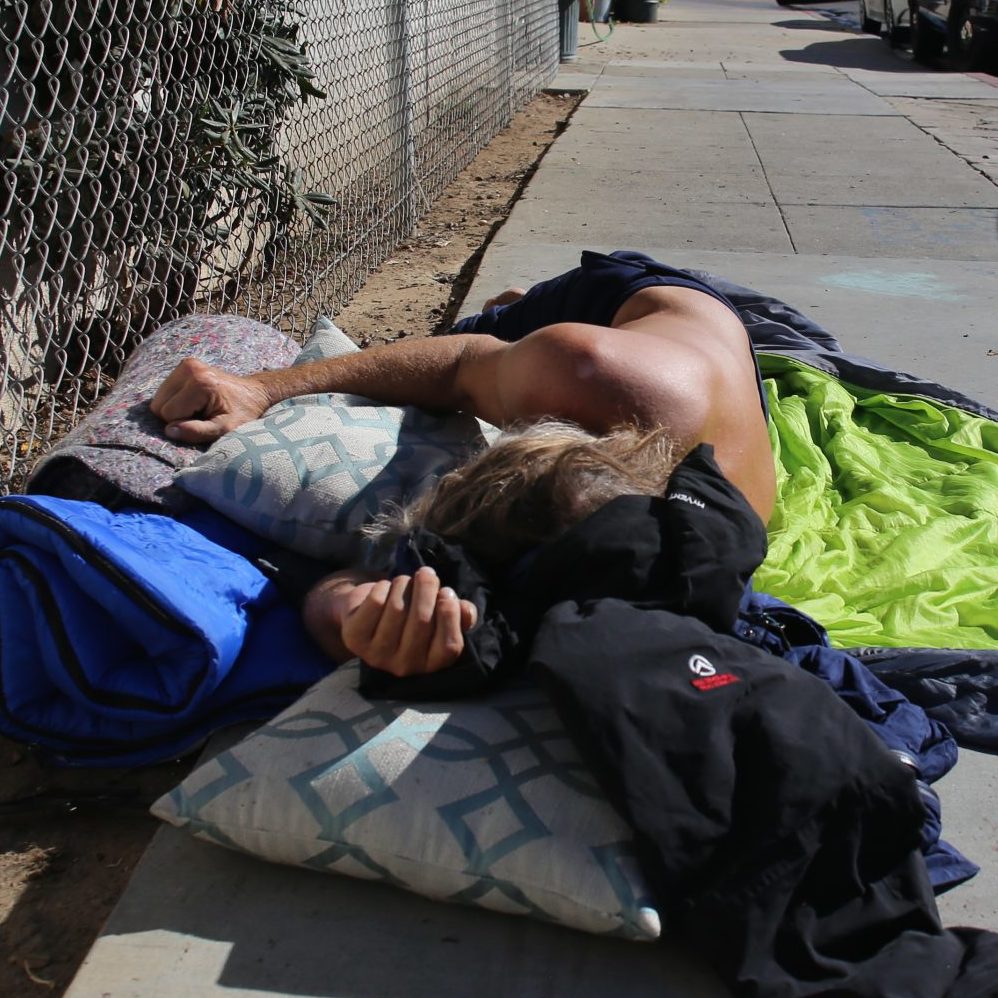According to the governor’s announcement, among other things the initiative would, “Amend the Mental Health Services Act (MHSA), leading to at least $1 billion every year in local assistance for housing and residential services for people experiencing mental illness and substance use disorders, and allowing MHSA funds to serve people with substance use disorders.”
The MHSA is the Mental Health Services Act of 2004, established by the passage of Proposition 63. It imposed a new 1-percent tax on incomes above $1 million a year. Today the state’s top tax rate is 13.3 percent, the highest in the country. Prop. 63 now is generating about $3.8 billion a year, although the approaching recession could reduce that amount. But the high tax climate has been driving the wealthy out of the state.
Newsom’s approach would be similar to Proposition 2 from 2018, the “No Place Like Home Act,” which floated $2 billion in bonds to be paid for from the existing Prop. 63 tax. That change let the counties use the bond money to house the mentally ill and homeless. Prop. 2 was placed on the ballot by Senate Bill 1206, co-authored by then-Sens. John Moorlach, R-Costa Mesa, and Kevin de Leon, D-Los Angeles. There were no new taxes.
Apparently, there would be no new taxes in Newsom’s proposal. However, there is no exact language yet. The governor’s announcement said he “plans to work in close partnership with legislative leaders” and others “as bill language is developed.” Several inquiries to his office asking if they have completely ruled out a tax increase did not bring a response. (I’ve been calling governors’ press offices for 36 years and always have received responses within hours, or a day at most. As an aside, the governor needs to get this straightened out if he’s serious about running for president.)
As to audits of existing housing policies, the following are the most recent from the State Auditor. As yet, there has been no audit of Proposition 1 from 2018, $4 billion for the Veterans and Affordable Housing Bond Act of 2018.
- 27, 2020: “California’s Housing Agencies: The State Must Overhaul Its Approach to Affordable Housing Development to Help Relieve Millions of Californians’ Burdensome Housing Costs.”
- 11, 2021: “Homelessness in California: The State’s Uncoordinated Approach to Addressing Homelessness Has Hampered the Effectiveness of Its Efforts.”
- 24, 2021: “California Department of Housing and Community Development: It Failed to Expedite Access to Federal Funding to Address the Impact of the COVID‑19 Pandemic on California’s Homeless Population.”
- March 17, 2022: “Regional Housing Needs Assessments: The Department of Housing and Community Development Must Improve Its Processes to Ensure That Communities Can Adequately Plan for Housing.”
- March 22, 2022: “State Surplus Property: The State Should Use Its Available Property More Effectively to Help Alleviate the Affordable Housing Crisis.”
“First, Newsom’s idea of using the Prop. 63 funds is worth a look because it’s already been done with Prop. 2,” Moorlach told me. From his time as Orange County treasurer-tax collector, then as a supervisor, then in the Senate, he has advanced reforms for the homeless and mentally ill. “Second, on the affordable housing front and all these efforts, I always wonder, why doesn’t government just stick to the core of what it’s supposed to do?”
“This isn’t what government is supposed to do,” he added. “And no wonder there aren’t positive reports. Tragically and ironically, it’s the state that’s actually holding up the manufacture and building of new homes, because it is so difficult to get an entitlement. It’s just so ironic the state wants to throw money at the problem, when the state itself is the major obstacle. It’s ineptness. When government tries to get into what the private sector does, and over-regulates with CEQA, then it’s no wonder why there’s not enough housing.”
I wrote about CEQA – the California Environmental Quality Act – previously for the Free Cities Center. And there are so many other things the state ought to do before putting up more bonds: enforce recent state laws to increase housing density, such as Senate Bills 9 and 10, which Huntington Beach is fighting. Sell off state surplus properties for housing, as recommended above by the auditor. End prevailing-wage laws that mandate paying union wages for public projects, even when private contractors are hired – commonly doubling the cost of construction.
Finally, Newsom’s proposal mentions, “The MHSA was originally passed 20 years ago; it is now time to refresh it so it can better meet the challenges we face.” True enough. But that’s the problem with what has been branded “ballot-box budgeting.” That’s where initiatives determine taxing and spending policy outside the purview of the Legislature, which then has to fashion budgets around the unchangeable mandates.
A better initiative would be one entirely repealing Prop. 63, letting the Legislature decide – outside of any ballot-box restrictions – how to deal with the housing crisis. An added benefit would be a tax cut enticing back all those millionaires and billionaires who have fled the state, taking with them their taxes, their businesses and jobs. The Golden State would be saying, “Come back from Texas. It’s too hot there. We’re making it easy. Remember our ocean breezes?”
The top rate would drop from 13.3 percent to 12.3 percent, still plenty high. But the actual revenues – the money collected – likely would jump because the state would take it from a broader tax base. You can’t tax billionaires if they’re not here. In turn, a stronger economy would provide incomes to many of the homeless, allowing them to find housing on their own. Sadly, the governor’s housing-bond proposal only offers more of the same failed policies.
John Seiler is on the Editorial Board of the Southern California News Group.

